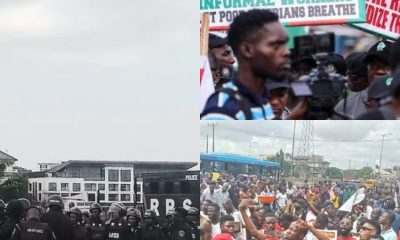News
About 20 Nigerians Killed In South Africa In Last One Year Without Justice – Community President
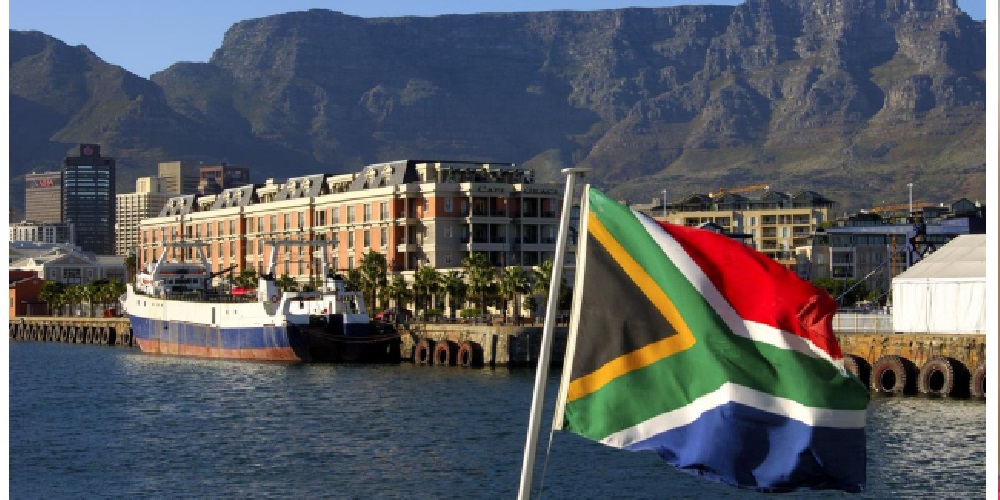
At least 20 Nigerians have been extrajudicially killed in South Africa over the past year, according to Frank Onyewekelu, President of the Nigerian Citizens Association in South Africa.
The disturbing trend is highlighted by the recent killing of Julius Chukwunta, who was brutally murdered by four individuals in Johannesburg.
Most of the victims, Onyewekelu revealed, were killed by security agencies, which is particularly concerning given the lack of accountability and transparency in the cases.
The Nigerian High Commission has been criticised for not doing enough to prevent the extrajudicial killings and ensure that justice is served.
Onyewekelu emphasised that if anyone commits a crime, they should be put on trial and face the consequences, rather than being subjected to extrajudicial killings.
The killing of Chukwunta, who lived in Midrand, Johannesburg, is a tragic example of this trend.
According to his partner, Chukwunta was attacked and killed on December 7, 2024, after some individuals blocked the entrance to his complex.
This is not an isolated incident, as the Nigerian government has previously condemned the killing of Nigerians in South Africa.
It is estimated that 116 Nigerians have been killed in South Africa through extrajudicial means over the past two years, with the majority of the killings carried out by the South African Police.
Onyewekelu who spoke in an interview with The PUNCH on the unfortunate killing of Chukwunta stated: “The unfortunate incident that led to his death happened on December 7, 2024. Based on the information we received from his partner, he was coming back from work with his partner. They already drove inside the complex when some guys blocked the entrance.
“He told them to move their vehicle so that he could have access to the parking lot. They refused, and that led to an exchange of words. When he saw that they remained adamant, he walked towards the estate security post to lodge a complaint. As he walked in that direction, the four guys followed him. They stopped him and a fight started. The four guys pounced on him. They inflicted heavy injuries on him.
“When his partner, who was waiting in the car for him, did not see him, she walked towards the security post and saw him on the ground, bleeding. She started calling for help but nobody came. This was for almost an hour, according to her. When there was no help from passersby, she called her father on the phone. Her father came to the scene of the incident. That was how they rushed Mr Chukuwnta to the general hospital on Saturday. He died on Tuesday which was December 10.”
Explained that Chukwunta died as a result of loss of blood because of the heavy injuries on his skull. “They hit a brick on his head. This opened a big wound on his skull. As a result of this, he succumbed to death.”
He noted that three of those four guys that killed him were originally from Zimbabwe although they have South Africa’s residence permits and identity documents.
He regretted that though they were charged for murder, three of the accused persons – Zimbabwean were granted bail in the sum of 10,000 rand each. “The fourth person was also supposed to be granted bail but as of the time of the bail hearing, he had not appointed a legal representative for his bail application.
“He was advised by the magistrate to formally apply for bail and when he does, there is a possibility that he will also be granted, while the case was adjourned till February 2025.”
Noting that he is working on trying to stand before the Senate or the House of Representatives to tell them about many of these sad experiences, Nigerians had been subjected, said:
“If I have to be specific with you, between November last year and December this year, we have had between 15 and 20 Nigerians who have died under this similar kind of death that could have been avoided,” he said.
“Let me mention just a few. Last week, a young Nigerian man was buried in Cape Town. He was arrested by the police authorities. He died in the holding cell due to the injuries inflicted on him by the police. Earlier this year in May, I drove to Northern Cape, another province in South Africa, which required a six-hour drive to report a case to the commissioner of police.
“The case was about police officers who searched his house and suffocated him while trying to search his house. He died in the hands of the police. There was an autopsy report and they refused to give it to us. Another Nigerian died in Johannesburg in the hands of the police. I was there at the scene of the incident and at the police station where he died. Nigerians came out en masse to protest.”
He added, “We have tried to reach out to the government through the Nigeria’s High Commission but they have not done enough. I understand the diplomatic ties and procedures. But, I’m expecting more steps to be taken by them such as media briefings to let South Africans understand that our lives matter.”
“A person is considered innocent until proven guilty. When they arrest anybody, we are not stopping them from letting the person face the wrath of the law if found guilty. But we are against letting Nigerians die through intimidation and brutalisation in the name of hatred against Nigerians. Many Nigerians have died and their bodies repatriated without their families knowing the cause of their deaths.
“This is why our government needs to come to our rescue. We want the Nigerian government to address this with the South African authorities. The Presidency and the Ministry of Foreign Affairs should understand that we are not just making up these stories. There is evidence. There are cases with the police and the courts lying there without being attended to and with no legal representation to fight for justice.”
He however, noted that the xenophobic attacks and hatred for foreign nationals in South Africa are not only against Nigerians.
“There is a kind of general hate for foreign nationals whether Africans or Westerners by South Africans, but Nigerians are on top of the list. I may not be able to explain what led to the hatred but the allegation that Nigerians are taking up their jobs is false. Well, in terms of marriage, when love happens, love happens. Nigerian men are lovable and caring. They know how to take good care of women. That is the reason I think South African women prefer Nigerian men to their men.
“But when it comes to jobs, that’s not true. I can tell you that 90 per cent of Nigerian men in South Africa are self-employed. They build their companies, develop their businesses, and grow their careers. They also employ some of these South Africans to work with them. You can only count a few Nigerians who work for the government or industries. Nigerians are mostly into business; they are medical professionals, lawyers, and others. Some are students, and others are involved in carpentry and hair styling. They open their shops.
“Statistics have proven that the percentage of South Africans in employment is higher than the percentage of foreign nationals put together. But still, you will hear complaints that they are taking their jobs. This rumour has been carried by South Africans who probably are lazy or trying to put up a defence or an excuse for their loitering around and not being serious about getting something to do.
“Our position is that somebody doesn’t have to die because he committed a crime. If there is a crime committed and the person is found guilty, we are not excusing anybody because in some of our programmes we also educate the Nigerian community on the rule of law.”
News
NDLEA nabs Iran-bound woman with cocaine in private part, stomach, bag at PH airport(Photos)

. ..arrests 22-year-old British ex-convict with large drug shipment at MMIA; intercepts fuel tanker, 3 vehicles with 3, 047kg skunk in Niger, 775 litres of codeine in Kano
Desperate attempt by a woman, Ihensekhien Miracle Obehi who disguised with hijab to export large consignments of cocaine concealed in her private part, stomach and false bottom of her handbag to Iran has been thwarted by operatives of the National Drug Law Enforcement Agency (NDLEA) at the Port Harcourt International Airport, Port Harcourt, Rivers state.
Obehi who was dressed in hijab to beat security checks was intercepted at the departure hall of the Port Harcourt airport on Sunday 3rd May 2025 while trying to board a Qatar Airline flight to Iran via Doha following credible intelligence. During her search, she was found to have inserted three wraps of cocaine in her private part, and two large parcels hidden in false compartments of her handbag while she swallowed 67 pellets of the Class A drug.
As a result, she was placed under excretion observation and after four excretions that lasted days, she expelled the 67 wraps of the substance in her stomach. She claimed she was to swallow 70 pellets of cocaine but after ingesting 67 pieces she could no longer swallow the remaining three and decided to insert them into her private part. The total weight of the three consignments hidden in different parts of her body comes to 2.523 kilograms.
In like manner, NDLEA operatives at the Murtala Mohammed International Airport, MMIA, Ikeja Lagos on Friday 9th May intercepted a 22-year-old British national, Campell Kaizra Kofi Johannes Slifer coming from Thailand through Doha on Qatar Airways flight with two suitcases loaded with 35 parcels of Loud, a strong strain of cannabis weighing 37.60kg.
Campell who claimed he had twice been convicted in the UK for drug trafficking and robbery, said he was recruited in London to travel to Thailand to pick the illicit consignment and bring same to Nigeria.
In Niger state, NDLEA officers acting on intelligence on Wednesday 7th May intercepted a fuel truck marked ABJ 693 XU and three other vehicles loaded with 246 bags of skunk, a strain of cannabis with a combined weight of 3, 047 kilograms along Suleja-Kaduna road. Four suspects arrested with the exhibits include: Christopher Onyema, 47; Benedict Etineruba Young, 54; Chukwudi Ujue Jerry, 30; and Mohammed Abdullahi Danasabe. Apart from the fuel truck, three other vehicles recovered from the suspects include: Honda Odyssey bus marked YAB 667 CZ; Gulf bus with registration number GWA 125 TQ and
Honda Odyssey bus marked ABJ 230 CN.
At Oja Amukoko in Ijora area of Lagos, two suspects: Eze Chekube Emmanuel and Ike Samuel Chinyerem were on Thursday 8th May arrested by NDLEA operatives with a total of 109,914 pills of tramadol, swinol and nitrozepam seized from them.
While 52.5kg skunk was recovered from two suspects: Lukman Sabo Umar, 23, and Tukur Ammadu, 20, in a bus at Gwantu, Sanga LGA, Kaduna State on Tuesday 6th May, NDLEA operatives on patrol along Bode Saadu- Jebba expressway, Kwara State on Monday 5th May
arrested Rufai Nasiru with 45,400 pills of tramadol 225mg.
In Bauchi state, NDLEA officers on patrol along Bauchi-Gombe road on Tuesday 6th May intercepted a Toyota Tundra jeep marked RBC 111 DW conveying 526 blocks of skunk weighing 505kg with two suspects: Isaac Onogure, 37 and Ikechukwu Peter, 44, arrested.
A total of 31 kegs containing 775 litres of codeine syrup were recovered from two suspects:
Hafizu Isa Uman, 34, and Ismail Shehu, 48, when NDLEA operatives raided their hideout at Rijiyar Zaki area of Kano on Saturday 10th May, while 1.1kg of Loud consignment concealed in pillow coming from Thailand was on Tuesday 6th May intercepted by NDLEA officers at a courier company in Lagos.
The War Against Drug Abuse, WADA, social advocacy activities by NDLEA Commands equally continued across the country in the past week. Some of them include: WADA sensitization lecture delivered to students and staff of Federal Government College, Sokoto; Deeper Life International College, Nteje, Anambra; Martins Sanda Girls Science College, Paikoro, Niger state; Restoration Power International School, Idua Eket, Akwa Ibom; while Oyo state command delivered WADA enlightenment lecture to members of the League of Imams and Alfas at Iseyin Central Mosque, Iseyin, among others.
While commending the officers and men of DOGI, MMIA, PHIA, Lagos, Kano, Kaduna, Bauchi, Kwara, and Niger Commands of the Agency for the arrests and seizures of the past week, Chairman/Chief Executive Officer of NDLEA, Brig. Gen. Mohamed Buba Marwa (Rtd) equally praised their counterparts in all the commands across the country for pursuing a fair balance between their drug supply reduction and drug demand reduction efforts.
News
Anambra takes action against primary school over N5,000 prefect nomination fee
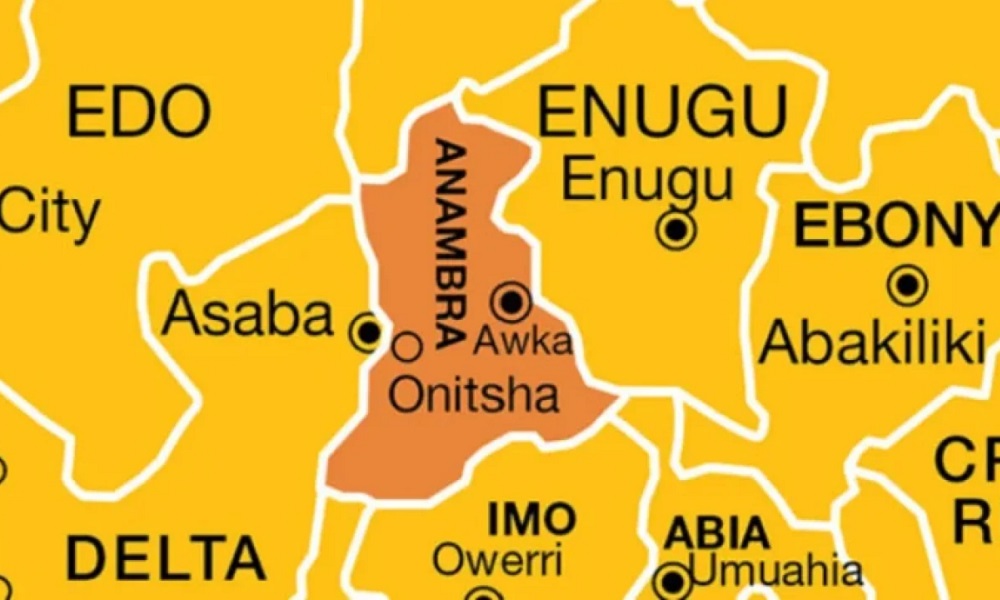
The Anambra State Government has slammed a one-month sanction on Blossom Fount School, Awka, for monetising student leadership by charging pupils N5,000 to contest for the position of head prefect.
The sanction, announced on Saturday by the state Commissioner for Education, Prof. Ngozi Chuma-Udeh follows reports that the school imposed the controversial fee on pupils in its primary section vying for leadership roles.
Describing the practice as “despicable,” Chuma-Udeh expressed outrage at what she called an attempt to commercialise student leadership and exploit the ambitions of young children.
She said, “Investigation is going on to know how the school is being run. It is an act of selling the psyche of the children to the highest bidder from the cradle, and it is not acceptable to this government.”
“The act of commercialising student leadership and exploiting children’s ambitions for financial gain is despicable. It amounts to selling the psyche of the children to the highest bidder from the cradle, and it is strongly condemned,” she added.
Chuma-Udeh stressed that Governor Chukwuma Soludo’s administration remains committed to upholding integrity and fairness within the education system, stating that such practices will not be tolerated.
According to reliable sources, the ministry’s investigation is still ongoing, and further sanctions may be imposed depending on the outcome. The goal, officials say, is to ensure accountability and deter similar actions in schools across the state.
News
NELFUND: ICPC deepens probe on loan fraud

The Independent Corrupt Practices and Other Related Offences Commission has continued its probe into the alleged discrepancies in the disbursement of funds under the Federal Government’s student loan scheme, Sunday PUNCH has learnt.
This comes amid repeated denials from the Nigerian Education Loan Fund that no money was missing in the student loan scheme.
Sources within the anti-graft agency told our correspondent that the investigation began after NELFUND sent a request, asking the agency to track the disbursed funds, after the National Orientation Agency raised the alarm that some schools were cheating the students on the loans disbursed to them.
One of the sources, an official of the agency who spoke anonymously because of the sensitivity of the matter, however, said no one had been indicted yet.
“We have just started the investigation. It was NELFUND that brought the matter to us to help them track where the money might have gone. We’ve not indicted anyone, but the allegation is still there,” the official said.
According to the source, preliminary findings revealed that N100bn was earmarked for the programme, but N28.8bn was disbursed to students.
Another source said further investigation had, however, shown that N203.8bn was received, out of which N44bn was disbursed.
“So far, we have not indicted anybody. They have disbursed N44bn. But when we get the recipients, we will find out if they did receive that amount. If they received the said amount, we will now find out where the discrepancy came from,” the senior official said.
The source urged Nigerians to remain patient and avoid insinuations, adding that the agency would disclose its findings once the investigation was complete.
“Nigerians should be patient with us and let us do our work. There is no need for insinuations. We are getting to the root of this. If the amount of N44bn has been received by the recipients, then there won’t be any problem. And if there are discrepancies, we will unearth them and disclose them to Nigerians,” the source said.
“If there are discrepancies, we will unearth them,” another source added.
NELFUND, on its part, has continued to dismiss the allegations of misappropriation as “entirely false and deeply damaging.”
In a statement issued on May 1, the Fund’s Director of Strategic Communications, Mrs. Oseyemi Oluwatuyi, stated that “the integrity of an institution established to deliver financial hope to millions of Nigerians must not be undermined by unverified claims.”
Managing Director of the Fund, Akintunde Sawyerr, also maintained this position during an appearance on Channels Television on May 4.
He confirmed that the Fund had actually received about N203bn, broken down as N10bn from the Ministry of Finance, N50bn from the EFCC’s proceeds of crime, and N143bn from TETFund.
He said, “The Nigerian Education Loan Fund has received about N203bn. I’ll break it down for you: N10bn from the Office of the Minister of Finance through the Office of the Accountant General, N50bn from the EFCC’s proceeds of crime, and N143bn from TETFund. So you can see already that the actual amount received is in excess of what’s even been said to have been received.
“Out of that, N54bn has been disbursed to date, while N30bn and N24bn had gone to institutions and for upkeep respectively. So there’s a pocket money side to this. That’s N54bn disbursed already in the space of about 11 and a half months. It’s in the Central Bank of Nigeria.”
Sawyerr reiterated this stance when he appeared before the House of Representatives Committee on Students Loan, Scholarship, and Higher Education on May 8, firmly stating that no funds were missing.
The controversy first gained traction in April following a National Orientation Agency investigation, which uncovered claims that some tertiary institutions, in collaboration with banks, were withholding student loan disbursements.
Efforts to reach ICPC’s spokesperson, Demola Bakare, proved abortive.
-

 News16 hours ago
News16 hours agoTrouble brewing as Trump’s supporters move against Pope Leo, give reason
-

 News19 hours ago
News19 hours agoHow doctor stole one of my twins during birth, Abuja housewife narrates nasty experience
-

 News19 hours ago
News19 hours agoNaira Rebounces Against Dollar – Saturday, May 10, 2025
-
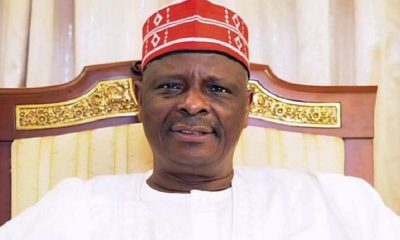
 News23 hours ago
News23 hours agoDefections: It’s a massive betrayal against NNPP -Kwankwaso cries out
-
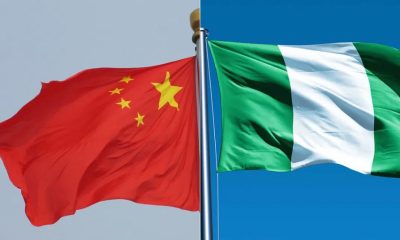
 News17 hours ago
News17 hours agoChina Responds to AFN Claims Over Visa Delays for World Relays in Guangzhou
-

 Education23 hours ago
Education23 hours agoWhy JAMB is withholding 39,834 UTME results
-

 Entertainment6 hours ago
Entertainment6 hours agoFemi Adebayo wins 2025 AMVCA ‘Best Lead Actor Award
-

 News6 hours ago
News6 hours agoNatasha’s TikTok vibe to Tinubu’s song raises concerns about potential defections






